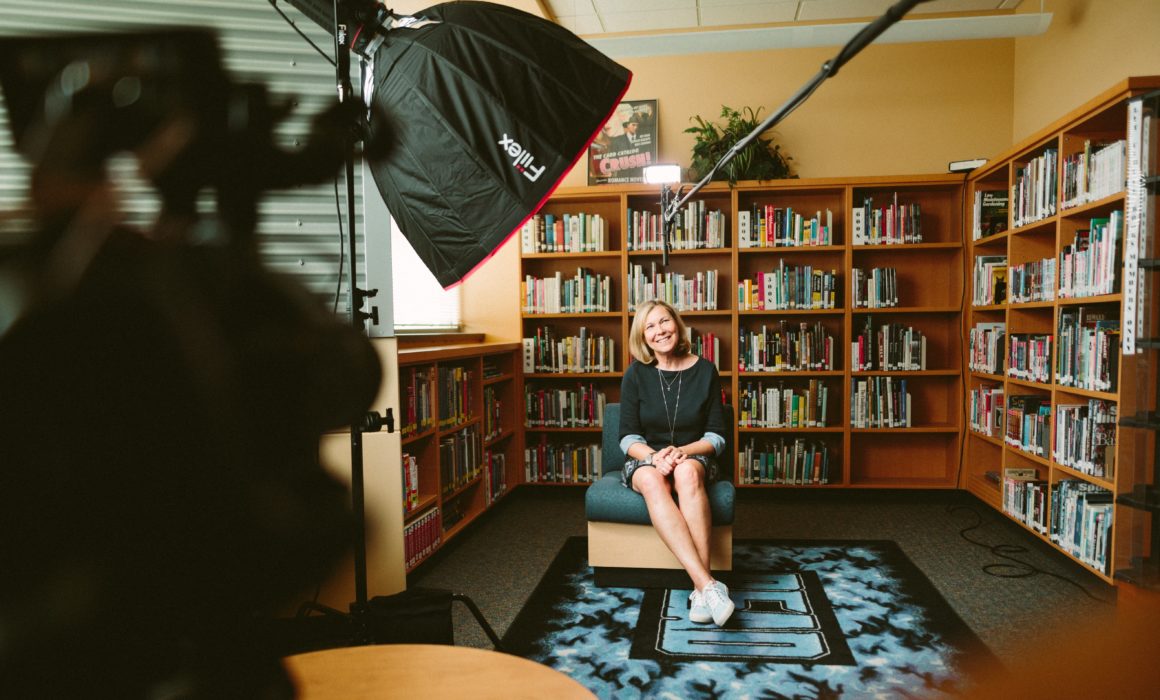B2B PR: Should I Get Media Training?
If you or your organisation are looking into B2B Public Relations and determining whether it might be the next step in your marketing plans, there are a few things you should consider before you get started. Firstly, after youŌĆÖve ensured that B2B PR is right for your business, and whether or not you are comfortable building more of an online thought leadership profile, it might be worth considering whether you should have some media training.
Media training is an important component of building your brandŌĆÖs thought leadership, as it allows you to communicate confidently and effectively when you are required to speak publicly about your organisationŌĆÖs offerings or services, as well as the key messages you wish to get across to your audience. Whilst you may already be a confident speaker or have an outgoing personality, this doesnŌĆÖt always mean you can communicate under pressure or in a live interview setting (totally not speaking from experience there ¤śē)
So, regardless of whether you are marketing yourself, your brand or are just the media-spokesperson for a B2B PR campaign, we will uncover why media training is an essential component and something you should definitely explore before you get started.
It gives you an opportunity to put your brand at the front and centre
More than ever, journalists are being inundated with press releases and information from a range of businesses and PR agencies, with some journalists reporting hundreds to thousands of new PR pitches per day. With the knowledge that journalists are always seeking a unique angle, a great way you can stand out from the crowd is offering either yourself, or a company spokesperson forward for an interview. To a journalist, having an expert or talent to interview is regarded much more favourably than simply a ŌĆścopy and pasteŌĆÖ quote from a press release. Journalists are far more likely to conduct an interview with talent if they are available, and so having media training before you begin any B2B PR campaign will ensure you are able to set yourself apart in the market from your competitors and gives you more of an opportunity to put your brand at the front and centre.
It prepares you for live interview conditions
It doesnŌĆÖt take much to think of one (or several) interview ŌĆśfailŌĆÖ moments throughout history that leave you cringing at just the thought. Ellen DeGeneresŌĆÖ failed interview with 50 Shades star, Dakota Johnson, anyone?
Too many times we have seen the way interviews can go horribly wrong when the interviewee is not well-prepared for the situation, or they didnŌĆÖt know how to respond to something thrown their way!
Thankfully, with media training, professionals can prepare for live interviews under controlled conditions. ItŌĆÖs one thing to know your key messages or content, but sometimes under the pressure of a camera, an intense journalist, or even just a short interview timeslot, important information can easily go out the window. Media training ensures that you can be prepared for a live interview situation so you can communicate your important brand messages effectively and succinctly. In a media training scenario, you are also able to prepare for any niggly questions that might be posed by a journalist out of left field. This will mean you are able to work through a positive response that wonŌĆÖt see you do any long-term reputational damage to your brand.
Having media training before a live interview will mean you are more confident being able to smoothly control the interview and ensures you can get your own key points across, rather than just answer the questions posed to you. As they say, practice makes perfect, so the more interview preparation you do, the better!
It helps pinpoint communication issues
Everyone loves to talk, but itŌĆÖs very easy to get tongue-tied and lost in jargon whilst doing a media interview. While you might be an expert in your field, your interviewing journalist might not have all the background knowledge on the industry you do, so doing media training ensures that your facilitators can pinpoint communication issues before you get to the real thing.
In media training, your facilitators will be able to tell you whether you need to adjust your pace (talking too fast or slow), are using too many superfluous words (ums, buts, likes, etc), are complicating or adding too much ŌĆśjargonŌĆÖ for the audience, or overall are just not being direct and actually answering the question. In B2B Public Relations training, a good facilitator will be listening out for these key communications issues and have you continually practice until they work their way out of your vocabulary and syntax.
While media training can feel like just ŌĆśanother thingŌĆÖ to add to your B2B PR preparation list, it is an essential skill that we promise will serve you well in the long run. With studies showing that 86% of consumers expect CEOs and organisations to speak out more publicly in the face of world-events, itŌĆÖs time to ensure your media skills are up to par.1
For further information, or to find out more about Agent99ŌĆÖs media training services, please contact us at info@agent99pr.com
By Agent Emilie
- Edelman. Trust Barometer Report. 2021.
